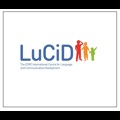
A group of researchers from the Universities of Liverpool, Manchester and Sheffield will be hosting a CPD event this weekend for practitioners interested in supporting families with shared book reading. The researchers have spent the last three years working on a series of projects investigating how to promote children's language development using family-based shared book reading. The project has not only taught us a lot about reading, but also about how to encourage parents to take part in programmes to boost their children's development.
There is lots of evidence to show that shared reading has a positive effect on children's language development (read this summary of the evidence regarding how shared booking reading promotes language development, for more information). For lots of families, reading together is a wonderful experience, but what if you're a parent who can't read very well, who lacks confidence in reading, or had a bad experience of reading at school? Would you want to read books with your children then? And even if you wanted to, would you feel confident enough to do it? One of the projects teamed up with The Reader organisation to see whether their Shared Reading programme could encourage parents to enjoy reading with their children. (You can read more about this project in another blog, here). Working on this project raised many questions about why more parents don't take part in programmes to boost their children's development and how these barriers might be overcome. The vast majority of parents want to give their children the best start in life, so why aren't more of them taking advantage of the programmes available to them? This isn't just an issue faced by research projects, but by nurseries, sure start centres, health visitors and a whole host of other groups working in the early years sector.
So, the project team, (Jamie Lingwood, Josie Billington and Caroline Rowland), did what researchers do and turned to the evidence to see what could be learnt from this. They have put together a handy NEW evidence briefing compiling the most significant barriers to parental participation in programmes to boost child development according to recent research and then they also discuss possible solutions. Some of their findings may seem like common sense, but actually, it's amazing the number of programmes that fall down simply by not placing their target audience (in this case parents) at the heart of their design. With this in mind, the next time you're designing a programme for parents and families, have another read of this briefing and see whether you've thought about the issues raised. That's what we'll be doing, anyway.

